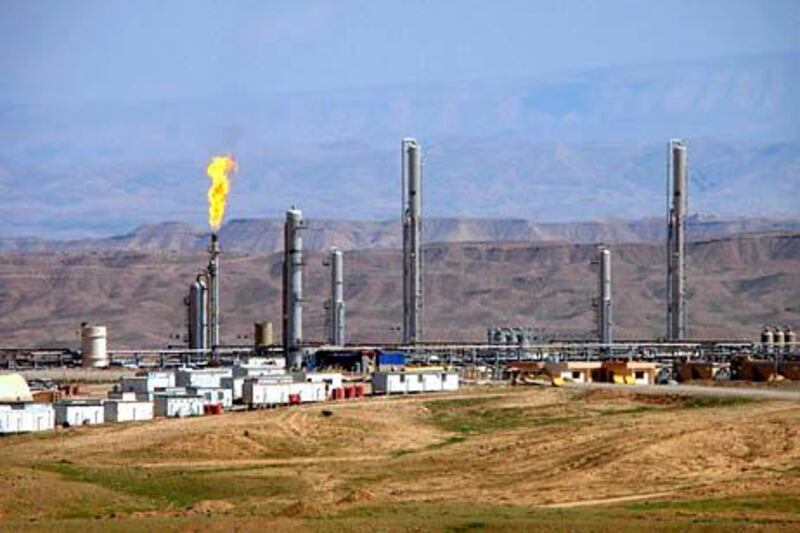Dana Gas has reached a deal with creditors to restructure its US$1 billion (Dh3.67bn) sukuk, extending the bulk of the debt for another five years.
The resolution ends a period of uncertainty that has been ongoing since the Sharjah fuel producer missed its October 31 deadline to repay the Islamic bond.
Under terms announced yesterday, Dana will reduce the debt to $850 million by paying down $70m of it and cancelling the $80m share it already owns.
The debt will then be split into two $425 tranches: an ordinary sukuk, which will pay a profit of 9 per cent, and a convertible sukuk at 7 per cent that will convert to shares.
The average combined profit rate of the new sukuks is 8 per cent, compared to the original sukuk's 7.5 per cent.
"We believe that the terms being announced today represent a comprehensive, long-term solution which balances the interests of all stakeholders," said Adel Khalid Al Sabeeh, Dana's chairman. "The board plans to secure necessary stakeholder consents for implementation of the transaction."
The deal, signed by a committee of bondholders, must pass two more tests. For it to be formally approved, at least 51 per cent of all bondholders must meet, 75 per cent of whom must grant the green light.
Then a majority of shareholders must approve the deal.
Dana's difficulty in paying the sukuk on time arose from cash flow issues in its two key producing areas, Egypt and Iraqi Kurdistan.
In Egypt, the revolution put a temporary stop to government payments for gas, although Cairo has begun paying off the $200m backlog.
Meanwhile a dispute between the federal government in Baghdad and the regional government in Erbil has slowed the flow of payments to Kurdish producers for their operating costs and fuel exports.
Last week several independent producers reported they had received initial payments, including $48m for Dana.
The new sukuks will be backed by the company's Egyptian and UAE assets, not the Kurdish acreage that it operates in a joint venture with its sister company Crescent Petroleum, Hungary's MOL and Austria's OMV.
Shares of Dana closed at 40 fils before the deal was announced yesterday afternoon. The values are a tenth of the company's highs after its initial public offering.





